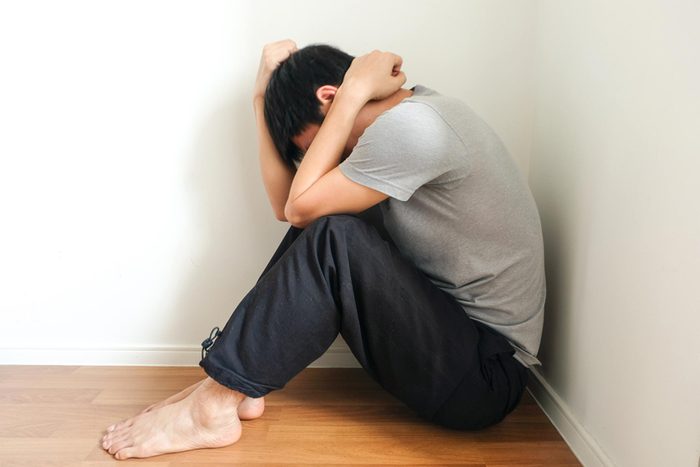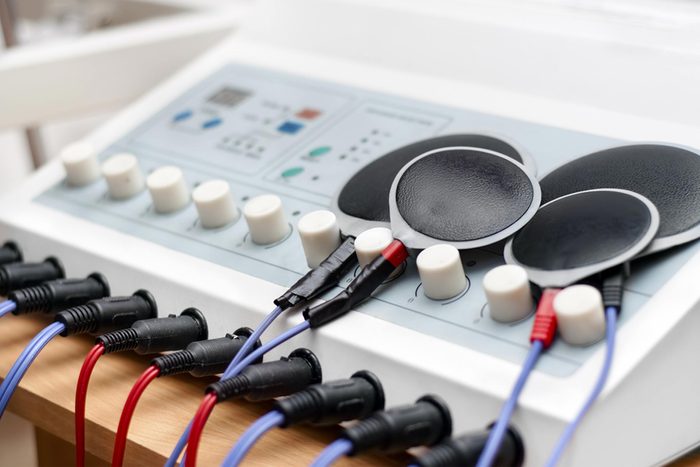Depression is a major problem and meds don’t always work
Take a look around. For every 100 people you see over the age of 12, at least 10 of them are taking medication for depression, according to the National Institutes of Health. And about one-third of those on medication don’t find relief from their depression symptoms, according to Scott T. Aaronson, MD, the director of clinical research programs for Sheppard Pratt Health System and lead author of a recent major study on people with chronic, treatment-resistant depression.
Of those who do find relief initially (also known as “remission”), another third will experience “tolerance,” which might be better known by its less technical term, “poop-out,” according to Shanthi Mogali, MD, a double board-certified physician in General and Addiction Psychiatry and director of psychiatry at Mountainside Treatment Center with a specialty in treating patients with depression.
Luckily there are a lot of options, and more in the pipeline all the time. In the meantime, it’s important to understand what’s really going on.

Science is still trying to figure out what’s what
Over the past two decades, scientific evidence has been mounting that there is an essential difficulty in demonstrating differences among various antidepressant treatments and placebos in controlled clinical trials. This had led to increasing uncertainty about the therapeutic benefits of antidepressant medications. But it has also led to additional research and increased understanding as to why it is difficult to reproduce the results of experiments geared to demonstrating the efficacy of various treatments.

Depression can masquerade as other disorders
Just because your symptoms match those of depression, that doesn’t mean that your diagnosis should be “depression,” which is also known as “major depressive disorder.” In some cases, depression symptoms may be caused by other illnesses, says Scott Carroll, MD, neurophysicist and psychopharmacologist. For example, bipolar disorder can cause forms of depression, but those forms of depression will not respond to the same types of medications as non-bipolar depression. Similarly, personality disorders can present with depressive symptoms, when they are not, in fact, depression. Personality disorders won’t respond well to antidepressants, and someone who is suffering from a misdiagnosis of this sort will believe that meds aren’t working, despite that the issue isn’t the meds but the diagnosis.

Even if what you have is depression, there are nuances
Despite the sense that there is one illness called “depression,” says Dr. Carroll, “there are likely to be many different aberrations of biology that cause this condition,” and that means there will be just as many different ways to manage mood. “It is hard if not impossible to accurately predict what any individual patient will respond to, but thankfully many patients do, in fact, respond.” One way clinicians can find the right medication is to identify clues based on the patient’s specific symptoms. For example, is the patient sleeping too much, or unable to sleep? Has he lost his appetite? Or is he eating compulsively? Is he agitated or excessively sedentary? Based on these clues, one medication may emerge as more likely to work than the others.
Another set of clues clinicians use is the patient’s general health such as age, physical fitness, and pre-existing conditions, such as diabetes, says Dr. Mogali. Another good predictor is how a close family member responded to a particular medication, adds Gail Saltz, MD, a New York psychiatrist.

Our brains adapt
Once you’ve found a medication that works for you, it’s not one and done. The challenge becomes maintaining this remission. “The poop-out phenomenon is so prevalent,” notes Dr. Mogali, “that has its own diagnosis: tachyphylaxis.” Dr. Saltz says that the phenomenon can be explained by the way our neurons adapt over time to the medication.
“Most antidepressants increase serotonin levels,” Dr. Carroll explains, and “the body will down-regulate your serotonin receptors by either making them less sensitive and/or by decreasing the number of receptors in your synapses. Prozac is best known for this effect, but even then you usually only need to increase the dose once to maintain response.”
Dr. Mogali points out that situational factors can have an effect as well. These include stress levels, substance abuse, and medication interactions. Even the amount of physical activity you’re getting can impact the way the medication works, according to Dr. Saltz, who generally sees exercise as a positive factor.
When a particular medication no longer provides the patient with relief, “some may benefit from an increased dose, while others require a change to a different medication,” says Dr. Aaronson. “Some researchers are beginning to wonder if there is an important difference between folks who have never responded to medication versus folks who respond and then lose the response. There may be an important difference that could shape our understanding of depression and its treatment.”

Take the “talking cure” seriously
“Psychotherapy is an often-overlooked part of the solution,” notes Dr. Carroll. “It can take years, but psychotherapy can fully cure your depression and even prevent future depression, but you have to be willing to go every week and to change. Medications and all the other treatments only work while you take them. They don’t have lasting benefits after you stop.”
Dr. Saltz says that the first line of treatment should always be therapy. Then, if and when medication begins, it should be monitored carefully, including discussions of mood, sleep, appetite, libido, suicidal thoughts, agitation, and lethargy, all of which can point toward a response or lack thereof.

The power of shut-eye
When you’re first going on an antidepressant, getting enough sleep could make a big difference in how well you respond, according to researchers at the University of Michigan who studied 68 depression patients during their first two weeks on an antidepressant (fluoxetine, which is also sold under the commercial name, Prozac), assigning them to spend either six or eight hours in bed. What the researchers found is that those who slept eight hours were almost twice as likely to achieve remission after the full eight weeks of antidepressant treatment—63 percent, as compared with 33 percent in the six-hour group. Their response was also faster. “This is the first study to demonstrate that adequate sleep might accelerate and augment antidepressant treatment response,” says J. Todd Arnedt, PhD, associate professor in psychiatry and neurology at Michigan, and the lead investigator for the study, which was published in 2016 in the Journal of Clinical Psychiatry.

Making sense of the options
A quick flip through a magazine or a couple of hours in front of the television will tell you that there are myriad options when it comes to antidepressant medication. But generally, there is an accepted method by which clinicians go about finding the specific medication that is right for you.
These days, you generally start with what’s known as an SSRI (selective serotonin reuptake inhibitor), says Dr. Saltz. It’s not known exactly how SSRIs work, but the effect is that more serotonin (a feel-good chemical) is circulating in your body. SSRIs include drugs such as Prozac, Zoloft, Lexapro, and Paxil. You give the prescription six to eight weeks at a therapeutic dose, and if there is no response, you can try a different SSRI.
If there is a partial response, you can augment the first SSRI with non-SSRI antidepressants such as Wellbutrin or Remeron. After failing two SSRIs, explains Dr. Saltz, you can then move to what’s known as an SNRI (which stands for serotonin and norepinephrine reuptake inhibitor), such as Cymbalta and Effexor.
If the SNRI trial doesn’t work, you can try them in combination. Then you can start adding “augmenting agents” like thyroid hormone, anti-inflammatory treatments such as fish oil, and even light box therapy.

Next steps
If a complete trial of medications fails to bring relief, all is still not lost, however. “Electroconvulsive therapy (ECT) is another option,” says Dr. Saltz. ECT is what used to be known as electroshock treatment. There is also transcranial magnetic stimulation, says Dr. Carroll. Other therapies to try when others have failed include vagal nerve stimulators and deep brain stimulators. Deep brain stimulation (DBS) has been effective in treating Parkinson’s and Tourette syndrome.

New hope in your DNA
Your response to an antidepressant is governed in large part by your genetics and your personal neurobiology/physiology, according to Sharon Jellinek, MD. “We now have the capability to genetically test what drugs may be the best fit for a patient by DNA pharmacogenetics metabolism profiling,” says Dr. Jellinek, who recently presented her research at Georgetown University and believes it is “imperative” to do such profiling before treating depression with antidepressant medications.
“I specialize in a more targeted treatment approach for my patients,” Dr. Jellinek explains. “SSRIs often fail due to an inborn error in metabolism. It is of utmost importance to pick a medication that the patient can metabolize optimally.” Dr. Jellinek has hope for an emerging field of study called epigenetics as a way to provide a more targeted approach in treating depression (as well as anxiety and autism spectrum disorders).
